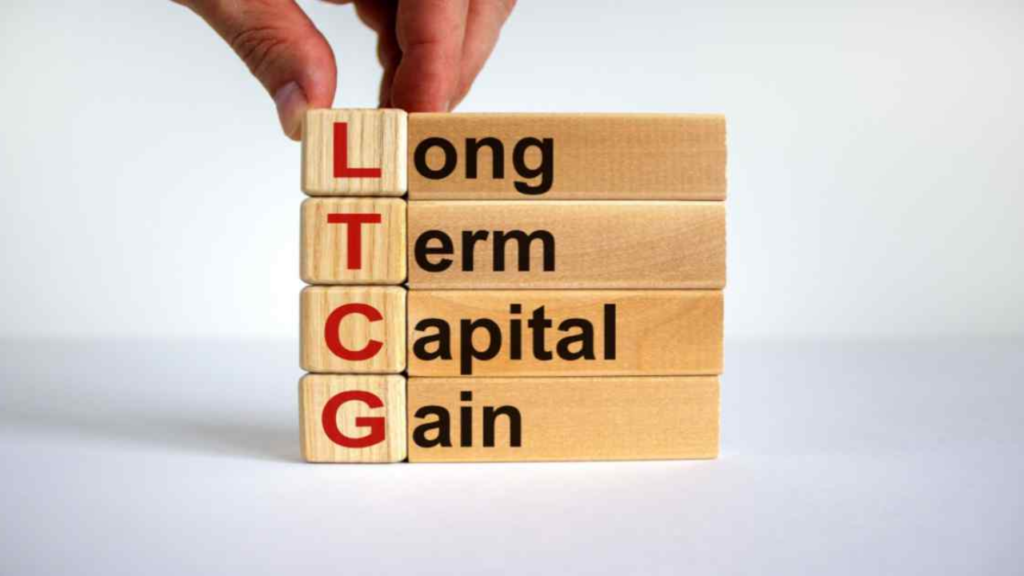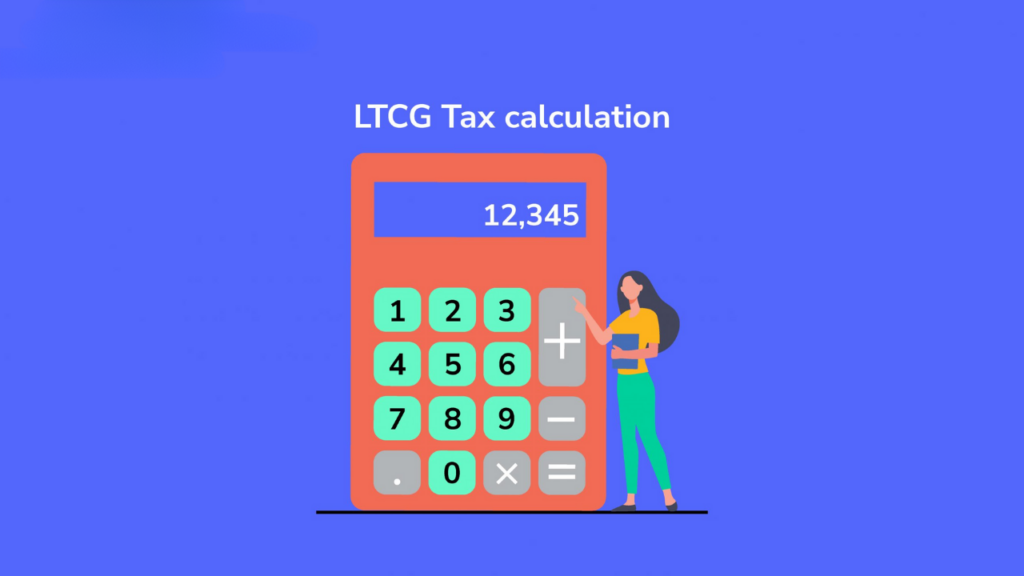Navigating LTCG on Property in 2024: A Guide for Indian Investors
Hey there, property investors! Thinking of selling that apartment or plot you’ve been holding onto? Great! But before you celebrate that windfall, let’s talk about a not-so-celebratory aspect – Long-Term Capital Gains (tax) – LTCG on Property.
This article will be your one-stop guide to understanding LTCG on property in India for 2024. We’ll break down the concept, delve into the nitty-gritty of calculations, explore ways to save some tax rupees, and wrap it all up with some helpful FAQs.
- 1 Introduction to Long-Term Capital Gains (LTCG) on Property
- 2 Understanding the Concept of LTCG Tax in India
- 3 Calculation of LTCG Tax on Property Sales
- 4 Exemptions and Deductions Available for LTCG Tax on Property (Let’s Find Those Loopholes!)
- 5 Strategies for Minimizing LTCG Tax Liability on Property (Now Let’s Get Crafty!)
- 6 Important Points to Remember
- 7 FAQs (Let’s Clear Up Any Doubts!)
Introduction to Long-Term Capital Gains (LTCG) on Property

In order to understand LTCG, consider that you bought a piece of land years ago for a steal and now, thanks to booming real estate prices, you’re ready to sell it for a hefty profit. That profit is considered a capital gain, and if you’ve held the property for more than two years (in some cases, three years; one year for equities), it becomes a Long-Term Capital Gain (LTCG). Now, the government wants a slice of that pie, and that’s where LTCG tax comes in.
Understanding the Concept of LTCG Tax in India

The Indian government introduced LTCG tax on property in 2017. If you sell your property after holding it for more than 2 years (or 3 years for inherited property), any profit you make is subject to LTCG tax. The current LTCG tax rate on property in India (as of April 2024) is 20% with indexation benefits. Let’s say you bought your property in 2010 for ₹10 lakh. By 2024, due to inflation, the real value of that ₹10 lakh might be much lower. Indexation will then allow you to adjust the purchase price for inflation, reducing the taxable capital gain and potentially lowering your tax burden.
Calculation of LTCG Tax on Property Sales

LTCG Tax = (Sale Price – Indexed Cost of Acquisition) * 20%
Here, Sale price refers to the amount you receive when you sell your property; and Indexed Cost of Acquisition is the purchase price of your property adjusted for inflation using the Wholesale Price Index (WPI). You can find WPI data online or consult a tax advisor for help with calculations.
Let’s say you bought a property in 2015 for ₹50 lakh and sold it this year for ₹1 crore. Here’s how to calculate your LTCG tax:
Assume WPI adjustment for inflation increases the cost of acquisition from ₹50 lakh to ₹70 lakh (hypothetical figure).
LTCG Tax = (₹1 crore – ₹70 lakh) * 20% = ₹30 lakh * 20% = ₹6 lakh
Exemptions and Deductions Available for LTCG Tax on Property (Let’s Find Those Loopholes!)

If you invest the LTCG earned from your property sale in specific assets like new residential property, affordable housing, or capital gains bonds within a specific timeframe, you can avail complete exemption from LTCG tax. Also, if the total LTCG from all sources (including property) in a financial year is less than ₹2 lakh, it is exempt from tax.
Capital Gains Reinvestment in New Property (Section 54) suggests that you can reinvest the LTCG from the sale of your property in a new residential property within India within a specific timeframe (currently 18 months before or 2 years after the sale). This will help you avoid paying LTCG tax altogether.
Capital Gains Reinvestment in Bonds (Section 54EC) keeps you at ease if you do not want to buy properties. In this, you can invest your LTCG in specific government bonds, within six months of the sale, and claim a full exemption on your taxable gains. However, the interest earned on these bonds will be taxable. This is further better because selling a property involves costs like agent fees and legal fees. However, the good news is you can deduct these expenses from your capital gains, reducing your tax liability.
Lastly, Cost Inflation is a road to nifty exemption, which acknowledges that the rupee weakens over time. Basically, the government adjusts the cost of your property for inflation, reducing your taxable gains.
Strategies for Minimizing LTCG Tax Liability on Property (Now Let’s Get Crafty!)

Hold onto Your Property for Longer: The longer you hold your property, the greater the indexation benefit, potentially reducing your taxable capital gain. Ideally, aim to hold the property for more than 2 years (or 3 years for inherited property) to qualify for LTCG tax rates.
Sell and Reinvest in New Property under Section 35: Utilize the LTCG reinvestment option to save on taxes. The government allows you to invest the LTCG earned from your property sale in a new residential property within India within a specific timeframe (usually one year before or three years after the sale) to avail complete exemption from LTCG tax. This can be a great way to grow your real estate portfolio while minimizing your tax burden. If you have multiple properties, consider selling the ones with lower LTCG first. There are conditions regarding the minimum investment amount and the location of the new property, so carefully evaluate these requirements before choosing this route.
Offset LTCG with Capital Losses: If you have incurred capital losses from selling other capital assets like stocks or mutual funds, you can offset those losses against your LTCG on property, reducing your overall tax burden. Let’s say you sold some shares at a loss earlier in the financial year. You can use those capital losses to bring down your net LTCG from the property sale. This can be a useful strategy to utilize existing capital losses and minimize your tax outgo.
Important Points to Remember
Inherited property gets a boost! The cost price for calculating LTCG on inherited property is considered to be the market value on the date of inheritance. This can significantly reduce your LTCG. When you inherit a property, the tax department assumes the cost price to be the fair market value on the date of inheritance. This can be a significant advantage compared.
If you’ve used a home loan to purchase the property, the principal amount repaid can be included in the cost of acquisition, potentially lowering your LTCG.
Lastly, tax laws are subject to change. This guide provides a general overview of LTCG on property in 2024. It’s advisable to stay updated on any changes or consult a qualified tax professional for personalized advice before making any investment decisions.
FAQs (Let’s Clear Up Any Doubts!)
- What if I inherit a property? Inherited property generally gets a cost base adjustment equal to the market value on the date of inheritance. This can help reduce your LTCG Tax.
- What if I don’t have enough capital losses to offset my LTCG? Unfortunately, you cannot carry forward LTCG losses to future years. However, you can explore other strategies mentioned above like investing in specified bonds or reinvesting under Section 35.
- What are the specified bonds for LTCG investment? The government issues specific notifications listing eligible bonds for LTCG investment. These are generally PSU listed ones. You can consult a financial advisor for the latest list.
- What if I partially sell my property? LTCG will apply proportionately to the portion of the property sold.












